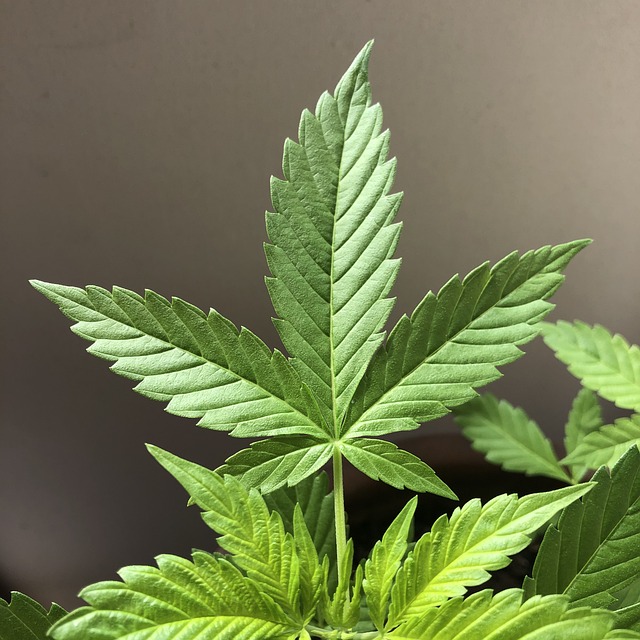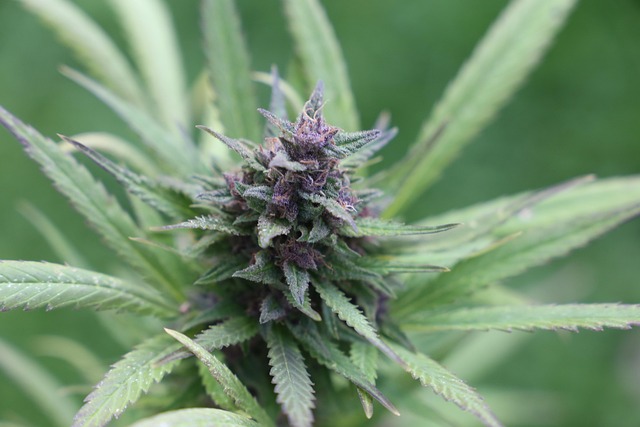Hemp Oil Diffuser Blends: Save Cash, Not Peace of Mind? THC vs. Hemp Gummies

Tired of breaking the bank for your wellness treats? Say hello to a more affordable and effective so…….
In the ever-evolving world of cannabis products, two prominent categories have captured the attention of consumers and industry experts alike—THC gummies and hemp gummies. These seemingly similar confections represent more than just a sweet treat; they are complex products with distinct characteristics, uses, and implications. This comprehensive article aims to delve into the intricacies of THC and hemp gummies, exploring their differences, global impact, economic significance, technological innovations, regulatory landscape, challenges, and promising future prospects. By the end, readers will have a thorough understanding of this dynamic sector and its role in the broader cannabis industry.
THC (Tetrahydrocannabinol) gummies and hemp gummies are both edible cannabis products, but they differ fundamentally in their composition and effects. THC gummies contain active cannabinoids, primarily tetrahydrocannabinol, which is responsible for the psychoactive or “high” associated with cannabis use. On the other hand, hemp gummies derive their effects from CBD (Cannabidiol), a non-intoxicating cannabinoid found in the hemp plant (Cannabis sativa L.).
Key Differences:
The cannabis plant has been used for medicinal and recreational purposes for centuries, but the isolation of specific cannabinoids is a relatively modern development. In the 1960s, researchers began identifying various cannabinoids, leading to the discovery of THC as the primary compound responsible for cannabis’ mind-altering effects. Simultaneously, CBD gained recognition for its potential therapeutic benefits without inducing intoxication.
Today, both THC and hemp gummies represent the evolution of cannabis consumption, catering to diverse consumer preferences and medical needs. As the global cannabis market continues to grow, these products have become increasingly popular, driving innovation and shaping public perception of cannabis-based therapies.
The global impact of THC and hemp gummies is profound, with significant variations across regions:
| Region | THC Gummy Market (2023 Est.) | Hemp Gummy Market (2023 Est.) | Legal Status |
|---|---|---|---|
| North America | $1.5 billion | $0.8 billion | Legal in many states; federal legalisation pending |
| Europe | $700 million | $350 million | Legal in most countries for medical and recreational use |
| Asia-Pacific | $250 million (growing) | $120 million (expanding rapidly) | Varied; some countries allow both medicinal and recreational use |
| Latin America | Emerging market, growing at 15% CAGR | Similar to Asia-Pacific trends | Legalisation efforts ongoing |
North America and Europe currently lead in THC gummy consumption, driven by progressive legal frameworks. The United States, Canada, and several European countries have legalised cannabis for both medicinal and recreational use, fostering a robust market. Asia-Pacific and Latin America are emerging markets with significant growth potential, particularly in countries where medical cannabis is legalising rapidly.
The THC and hemp gummy markets exhibit unique economic characteristics:
THC Gummy Market: This segment has experienced exponential growth due to increased acceptance and liberalisation policies. The North American market dominates, with a projected value of $1.5 billion in 2023. High-margin products and the adult-use market contribute significantly to revenue.
Hemp Gummy Market: CBD’s non-intoxicating nature has sparked immense interest. The global hemp gummy market is valued at approximately $0.8 billion, with rapid growth rates, especially in North America and Asia-Pacific. Many investors view CBD as a stable, long-term investment due to its versatility and potential health benefits.
These markets contribute to economic growth through:
Technological advancements have revolutionized both THC and hemp gummy production:
The future holds immense potential for technological advancements:
The regulatory landscape for THC and hemp gummies varies globally:
Regulations significantly influence market dynamics:
Despite their potential, THC and hemp gummies face several challenges:
Addressing these challenges requires a multi-faceted approach:
Israel’s medical cannabis programme has been a global success story. The country legalised medical cannabis in 2007, allowing patients access to various THC and CBD products, including gummies. The programme’s success lies in its stringent regulatory environment, which ensures product quality and safety. This case highlights the potential of well-regulated markets to provide valuable treatment options.
A British startup developed hemp-based gummies designed to alleviate anxiety and stress. These products gained popularity due to their natural approach to mental health support. The company’s success demonstrates the growing demand for alternative, non-pharmaceutical solutions. By focusing on product efficacy and quality, they fostered consumer trust.
In 2019, Health Canada approved a CBD gummy for treating epilepsy in children. This pioneering move allowed access to a potentially life-changing treatment for young patients. The case underscores the importance of flexible regulations in addressing rare and critical medical conditions.
The future holds promising growth opportunities:
Industry players should focus on:
THC and hemp gummies have emerged as significant players in the global cannabis market, offering diverse options for consumers and therapeutic possibilities for medical users. As regulations continue to evolve, these products will shape public perception and access to cannabis-based therapies worldwide. By understanding their differences, exploring technological advancements, and addressing regulatory challenges, industry stakeholders can navigate this dynamic landscape successfully.
Q: Are THC gummies legal everywhere?
A: No, THC gummies are illegal in many countries and regions due to the psychoactive properties of tetrahydrocannabinol. However, they are legal in certain states or countries with liberal cannabis laws. Always check local regulations before purchasing.
Q: What is the difference between CBD and THC gummies?
A: The primary distinction lies in their active cannabinoids. CBD gummies contain cannabidiol, known for its non-intoxicating effects and potential therapeutic benefits. THC gummies, on the other hand, contain tetrahydrocannabinol, which induces a psychoactive or “high” feeling.
Q: Can hemp gummies get you high?
A: No, hemp (CBD) gummies cannot get you high because CBD is non-intoxicating. While some people may experience mild mental or physical effects, they are generally subtle and not comparable to the intoxicating effects of THC.
Q: How do I choose between THC and CBD gummies?
A: Your choice depends on your preferences and needs. If you seek relaxation or potential pain relief without any psychoactive effects, CBD gummies are ideal. For recreational use or specific medical conditions, THC gummies may be appropriate, but always consult a healthcare professional first.
Q: Are cannabis gummies safe for everyone?
A: Like any substance, cannabis gummies should be used with caution. They may interact with certain medications or have side effects, especially in higher doses. Pregnant and breastfeeding women should consult doctors before consuming cannabinoids.

Tired of breaking the bank for your wellness treats? Say hello to a more affordable and effective so…….

Are you tired of seeing your pet struggle with anxiety or pain? Say hello to a natural solution that…….

Tired of the slow, lingering effects of traditional THC gummies? Upgrade to our THCA inhalers and ex…….